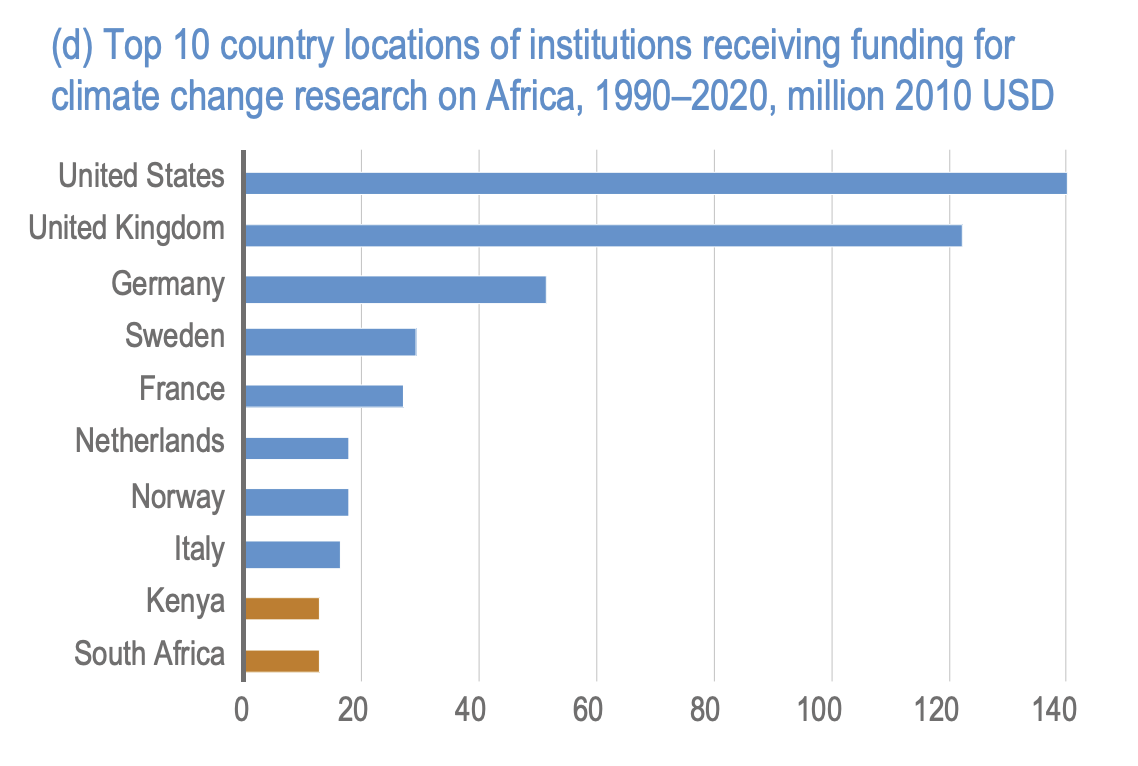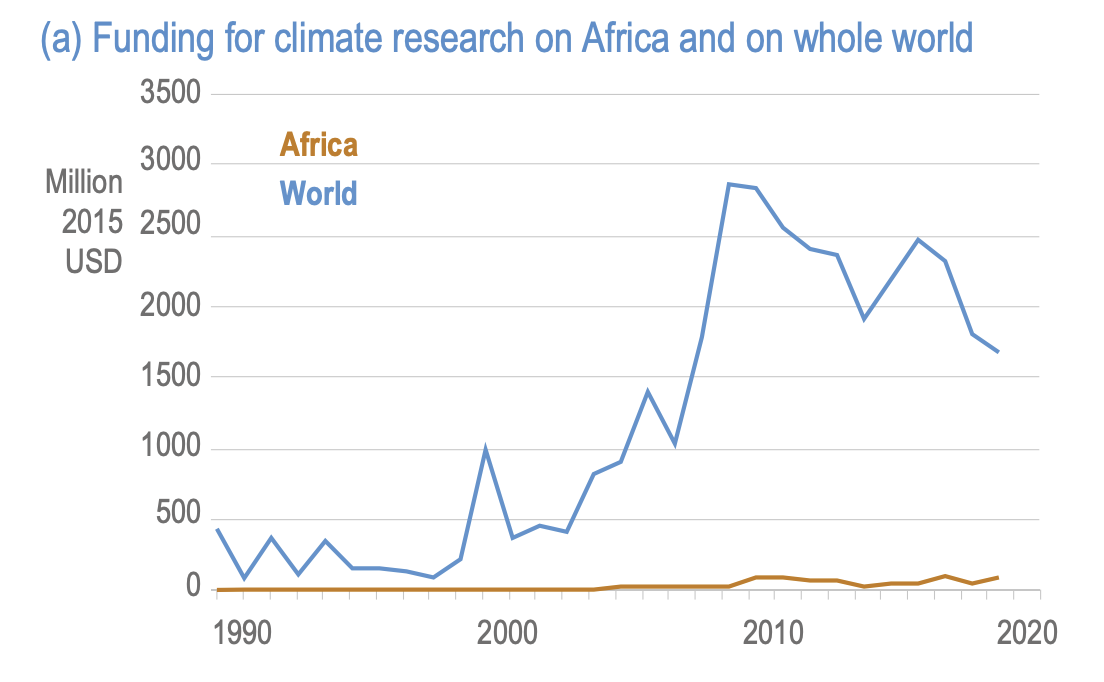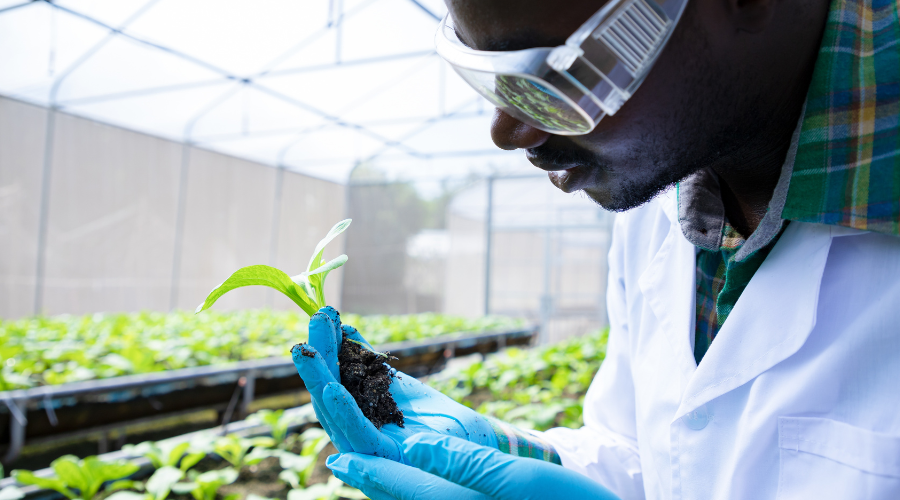
New Pathways and Hope for Climate Change Resilience and Biodiversity
17 October 2024
Global Climate Perspectives Ahead of COP29: Insights from the EIB Climate Survey and Key Lessons for the EU
21 October 2024By Alice ZAMBOLIN
It is renown that least developed countries would be those affected the most by climate change. Despite this, there are still huge uncertainties on the impacts of climate change on the Global South and scientific reports mainly suggest solutions which might have negative consequences especially in these countries. Part of the problem resides in a severe research gap and in the composition of the scientific community, characterized by an underrepresentation of authors coming from Global South countries (Biermann & Möller, 2019).
It has been noted that there are clear data gaps regarding the impacts of climate change on the Global South. Nowadays, analyses are based mainly on data generated outside of the continent that, however, propose averages across the globe, without distinguishing for the conditions of African States (IPCC, 2022). This is due mainly to the lack of financial means. According to the IPCC (2022), only 3.8% of the total funding for climate-research goes to African research institutions, an extremely low amount if compared to the high vulnerability of the continent. Most of the funding comes from outside Africa and is directed toward research institutions located in the Global North.


Source: IPCC. (2022). Sixth Assessment Report, Working Group II contribution, Climate Change 2022: Impacts, Adaptation and Vulnerability, 28 February 2022.
This disequilibrium in research funding results in inequalities in climate change research and policy proposals. Indeed, as underlined by Vincent et. al (2020), the most influential scientists in the research process are also those that can shape the research answers. IPCC’s authors are chosen based on the quantity of their publications and the number of citations they have received. However, given that top-scientific journals such as Nature require extremely high fees to publish articles and that only publications in English are considered, Global South authors are systematically excluded (Ketcham, 2022). This results in these reports being dominated by a small number of interconnected authors who engage primarily among themselves, as reported by Hughes and Paterson (2017). This dominance of Global North authors is translated into research answers formulated from a northern perspective and directed at a northern audience, which are not suitable for the needs and priorities of developing countries’ policymakers.
Therefore, to accelerate climate action, it is critical to prioritize the improvement of research funding for African institutions. But simply increasing the quantity of funding available is not enough; it is equally important to focus on the quality of that funding to ensure that it is effectively supporting the work of African researchers. This would allow African researchers to gain direct control of the research design and results rather than being subjected to externally set agendas. In addition, by disclosing more publications and data openly, African researchers would overcome the budget barriers represented by the high paywalls of top-scientific journals and, consequently, they would be better equipped to access the latest research findings and techniques, enabling them to make more informed decisions and advance their work more effectively. This would ultimately contribute to the development of more inclusive and collaborative research practices, which are essential for addressing the complex and multifaceted challenges of climate change on a global scale (Singh & Hopton, 2021).
References
Biermann, F., & Möller, I. (2019). Rich man’s solution? Climate engineering discourses and the marginalization of the Global South. International Environmental Agreements-Politics Law and Economics, 19(2), 151–167. https://doi.org/10.1007/s10784-019-09431-0
Daggash, H. A. (2021). Are the IPCC’s findings encouraging climate action in sub-Saharan Africa? CelPress, 5, 2540–2550. https://doi.org/10.1016/j.joule.2021.10.004
Hughes, H. R., & Paterson, M. (2017). Narrowing the Climate Field: the symbolic power of authors in the IPCC’s assessment of mitigation. Review of Policy Research, 34(6). https://doi.org/10.1111/ropr.12255
IPCC. (2022). Sixth Assessment Report. https://www.ipcc.ch/assessment-report/ar6/
Ketcham, C. (2022, November 17). How Scientists From the “Global South” Are Sidelined at the IPCC. The Intercept. https://theintercept.com/2022/11/17/climate-un-ipcc-inequality/
Mwareya, R. (2022, August 23). The 2022 IPCC report is grim. So also is its scarcity of African authors. – Minority Africa. Minority Africa. https://minorityafrica.org/the-2022-ipcc-report-is-grim-so-also-is-its-scarcity-of-african-authors/
Vincent, K., Carter, S., Steynor, A. et al. Addressing power imbalances in co-production. Nat. Clim. Chang. 10, 877–878 (2020). https://doi.org/10.1038/s41558-020-00910-w
Singh, I., & Hopton, A. (2021, October 17). Global south suffering gap in climate change research as rich countries drive agenda, studies suggest. CBC News. https://www.cbc.ca/news/science/global-south-climate-science-1.6212471


